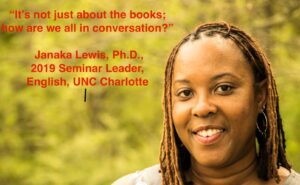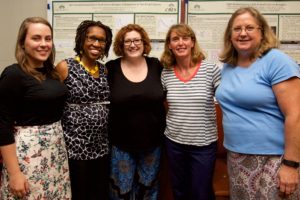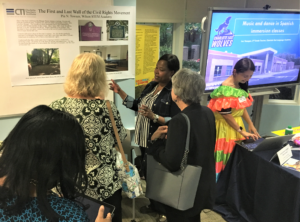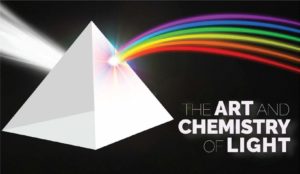Kendal P. Mobley, Th.D., Assistant Professor of Religion, Johnson C. Smith University
(meets at Johnson C. Smith University)
G.K. Chesterton famously characterized the United States as “a nation with the soul of a church.” This seminar will explore the idea that American nationalism has always incorporated a religious dimension, setting apart certain national values as sacred and transcendent—values to which the nation itself must theoretically be subject, and by which it should be judged. We will look at historical examples of American sacred values in core political texts, symbols, and rituals, especially in the American Revolution and the Civil War. We will examine the ceremonial role of U.S. Presidents and the sacrificial-salvific language associated with military service and veterans. We will explore the historical problem of integrating the southern civil religion of the Lost Cause with mainstream American civil religion after the Civil War, especially in the wake of the Spanish-American and First World Wars, and we will interrogate the relationship of marginalized communities to discourse of American sacred values, especially in the Civil Rights movement, the women’s movement, and contemporary political movements.
To facilitate our discussion, we will read sociologist Robert N. Bellah’s 1967 article, “American Civil Religion,” in which he argued that America’s sacred values are embodied in the historical discourse, rituals, documents, and symbols of civil religion. For more than fifty years, historians and sociologists have built upon and sometimes debated Bellah’s proposal. We will also read a number of primary sources, such Abraham Lincoln’s Second Inaugural Address and Martin Luther King Jr.’s “I Have a Dream.” Finally, we will select other scholarly analyses of civil religion that will be helpful for Fellows with the development of their curriculum units.
Explore curriculum units developed by Fellows in this seminar here.




















 Home
Home